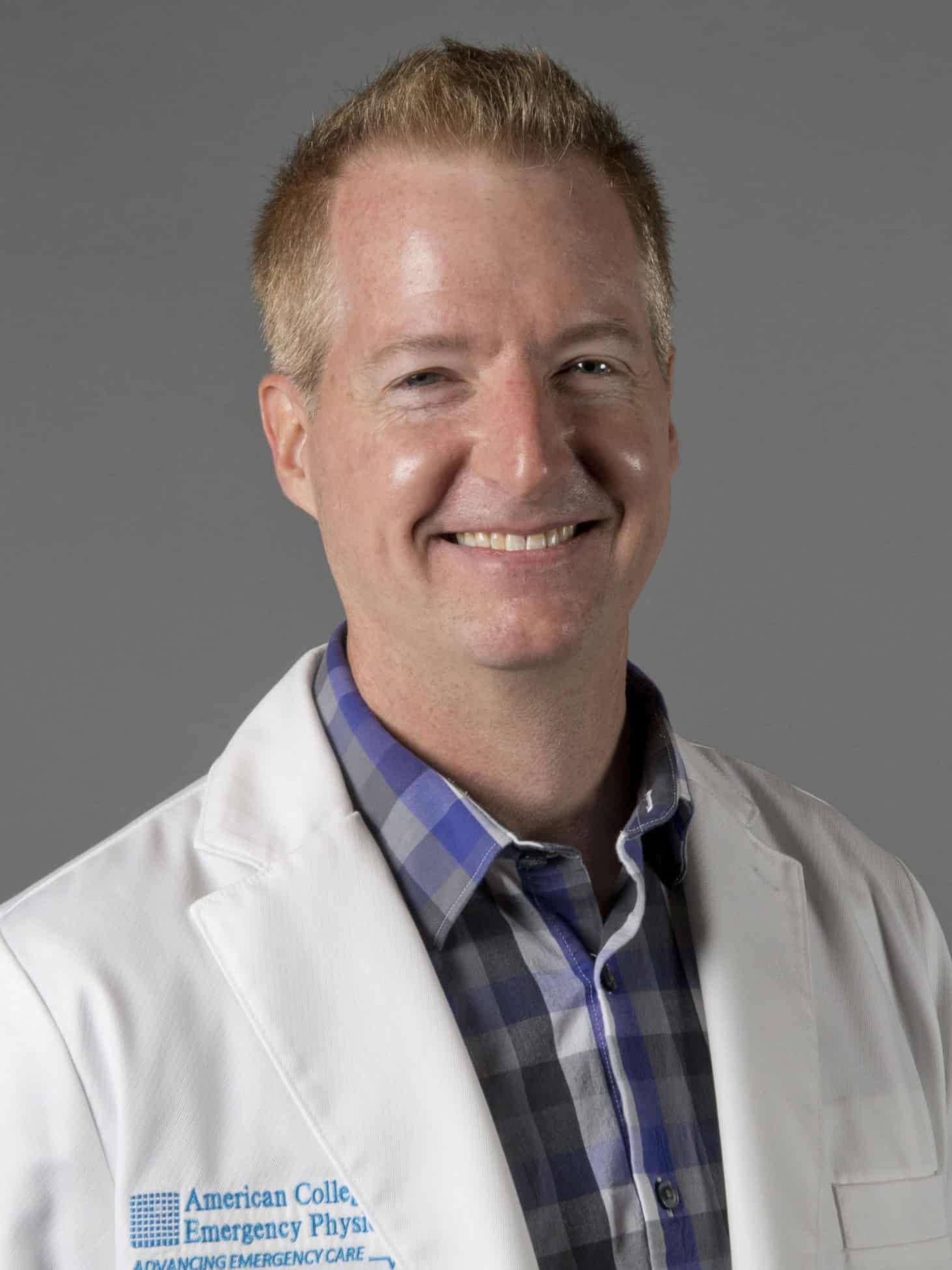Research Curriculum
At UAMS, you will have the opportunity to explore research in a large academic university setting. Our research curriculum is longitudinal, providing you with a strong foundation throughout your three years here. You will be introduced to the core principles of epidemiology, evidence based medicine, and scholarly project development in four ways: monthly Journal Club, our interactive EBM and knowledge dissemination didactic series, your residency scholarly project, and an optional research elective. You also have the opportunity to explore the many opportunities our University based program has to offer including a Translational Research Institute (in addition to six other institutes with robust research initiatives) and diverse basic sciences departments. Our Division of Education and Division of Ultrasound are also pursuing scholarly projects, so there are many opportunities to be involved.
Research and EBM Faculty



Pronouns: He/him/his
Evidence Based Medicine, Knowledge Translation, and Journal Club
Mastering the basic skills to be intelligent and efficient consumers of the medical literature will be one of the many things you will learn here that will distinguish you from other EM graduates. We take Evidence Based Medicine education seriously and incorporate it into our didactics, journal club, and regional and national work.
Dr. Carly Eastin is the faculty liaison for Journal Club. Each month, the topic/PICO question is chosen by the residents assigned to present at JC that month. At the request of our residents, our Journal Club series has been moved from the hospital to off-campus to provide a more informal setting. Held at a faculty member’s home, there is time to socialize with medical students, your fellow residents, and faculty while dinner is provided. Most importantly, there is dedicated time discussing the best available evidence for that month’s particular topic. We also frequently invite consultants to attend and offer their perspective on the topic. We end each session by asking the following question: Will this evidence change your practice? Afterward, the evidence presented at each journal club is summarized into a concise document which is posted in our Journal Club Archive.
Recent Publications
- No abstract
- Lyme disease, the leading vector-borne disease in the United States and Europe, develops after infection with Borrelia burgdorferi sensu lato bacteria. Transmission of the spirochete from the tick vector to a vertebrate host requires global changes in gene expression that are controlled, in part, by the Rrp2/RpoN/RpoS alternative sigma factor cascade. Transcriptional studies defining the B. burgdorferi RpoS regulon have suggested that RpoS activates the transcription of paralogous family 52…
- CONCLUSIONS: BDD ranges widely and patient characteristics are significantly different between those episodes following differing BDD trajectories. Future research on the association between BDD and subsequent patient outcomes (eg, overdose) needs to carefully consider these differences in baseline characteristics.
- CONCLUSION: Although buprenorphine retention in OUD treatment improved for all veterans over the 15-year study period, veterans from most minoritized racial and ethnic groups fell further behind as gains in duration on therapy accrued primarily to non-Hispanic White veterans. Targeted interventions addressing specific challenges experienced by veterans with minoritized identities are needed to close gaps in retention on buprenorphine.
- CONCLUSIONS: Machine-learning algorithms can accurately predict OUD-related outcomes with moderate predictive performance; however, prediction of these outcomes is driven by many characteristics.
- No abstract
- Changes in Residency Applicant Cancellation Patterns with Virtual Interviews: A Single-site AnalysisCONCLUSION: While limited, at our site, changing to a virtual interview format correlated with fewer cancellations overall. The proportion of cancellations within 14 days was much higher during virtual interview seasons, with most cancellations occurring during that time frame. Additional studies are needed to determine the effects of cancellation patterns on emergency medicine recruitment.
- Every year in the United States, approximately 48 million people are affected by bacterial illnesses that are transmitted through food, leading to 3000 fatalities. These illnesses typically stem from food animals and their by-products, which may harbor dangerous pathogens like Salmonella enterica, Listeria monocytogenes, enterohemorrhagic Escherichia coli O157:H7, and Campylobacter jejuni. Factors that contribute to contamination include manure used as a soil amendment, exposure to polluted…
- No abstract
- CONCLUSIONS AND IMPLICATIONS: Although healthcare professionals demonstrated lower levels of pathogen disgust, they nevertheless exhibited largely the same relationship between pathogen disgust and interpersonal biases as did control participants. One practical implication of this association is that pathogen avoidance motives may contribute to inequitable patient treatment in healthcare settings.
- CONCLUSION: In patients with gastroparesis presenting to the ED, droperidol reduced opioid use, improved pain control, and decreased antiemetic use without any differences in MME per dose, length of stay, hospital admission rate, or cost.
- BACKGROUND: Tuberculosis (TB) is one of the leading causes of infectious disease, and emergency medicine providers are often the first physicians to encounter patients with untreated or undiagnosed disease.
- No abstract
- Introduction: Ensuring high-quality scholarly output by graduate medical trainees can be a challenge. Within many specialties, including emergency medicine (EM), it is unclear what constitutes appropriate resident scholarly activity. We hypothesized that the quantity and quality of scholarly activity would improve with a clearer guideline, including a point system for eligible scholarly activities. Methods: A resident Scholarly Activity Guideline was implemented for EM residents in a university…
- Chen HS, Cui Y, Zhou ZH, et al; ARAMIS Investigators. Dual antiplatelet therapy vs alteplase for patients with minor nondisabling acute ischemic stroke: the ARAMIS randomized clinical trial. JAMA. 2023;329:2135-2144. 37367978.
